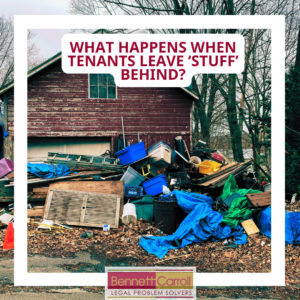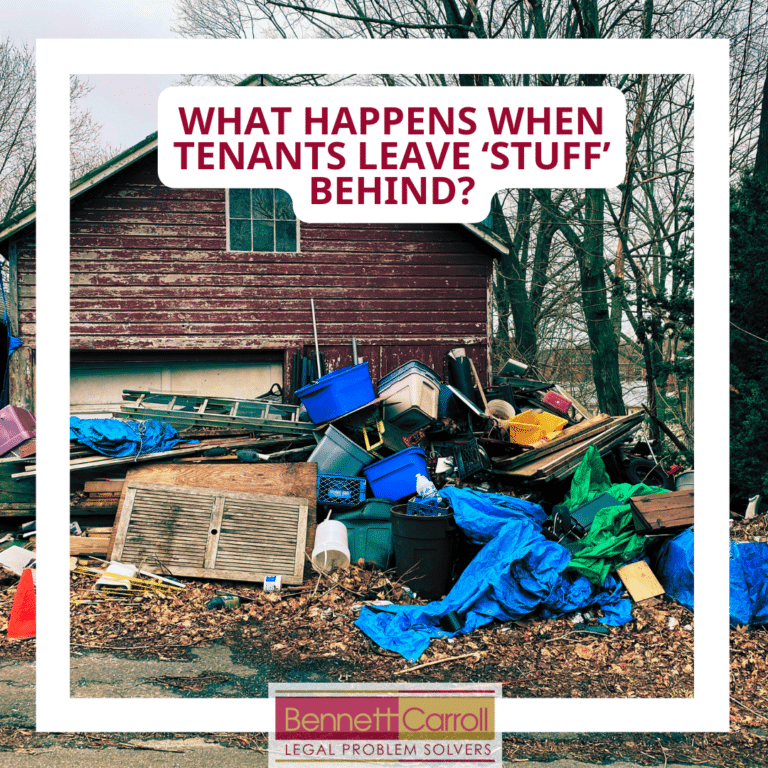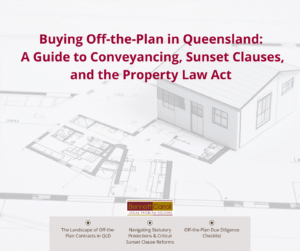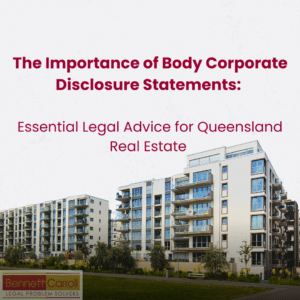Failure to deal with goods and documents in the way described below can be reported to the Compliance and Enforcement Unit of the Residential Tenancies Authority (RTA) and may incur penalties.
QCAT is the landlord’s and real estate agent’s friend: keep in touch with them because they issue abandonment orders, can oversee your claim from the sale of any goods and generally guide you throughout the process.
Incorrect handling of tenant’s goods can cost you money.
The Residential Tenancies and Rooming Accommodation Act 2008 (RTaRA) contains the legal provisions dealing with goods and documents that are left behind by tenants when they leave or abandon premises.
Tenancy agreement must have ended.
First step is to issue an entry notice; if tenants don’t respond then it is permissible to visit the property (RTaRA 192(1)(h)).
If you’re not sure if they’ve gone make an urgent application to QCAT.
If they’ve gone, formally terminate their lease by issuing an Abandonment Termination Notice
Documents left behind?
The agent or landlord must reasonably believe the tenant/lessor has abandoned the goods.
You must make a reasonable effort to find them – be sure to make a record of what you did, just in case. RTRA s 355 has details in regards “reasonable grounds” (sub section 5) etc.
No matter how peeved you might be at the tenants, you cannot keep personal documents such a photographs, birth certificates, passports, money if they ask for them.
If you try to contact them and can’t or they don’t respond then, under the law, the documents must be given to the Office of the Public Trustee (PT) within 7 days of the end of the tenancy.
But the PT doesn’t accept legal documents such as passports, Medicare cards, driver licences etc – in fact these items remain the property of the issuer (ie the government department). They should be returned to the appropriate department.
See RTRA s 364 for legislation about documents.
Abandoned Goods
So the tenancy is officially ended (see above steps).
You can’t find the tenants.
You can either dispose of their goods OR you can sell their goods.
Disposal of goods
You can dispose of their goods if
- the total market value of the goods is less than $1500, or
- storage of the goods would be unhealthy or unsafe, or
- storage of the goods would cause their market value to be completely or substantially reduced, or
- the cost of removing, storing and selling the goods would be greater than the amount raised in the sale of the goods.
See RTRA s 363
Sale of Goods
After the storage period has ended (see RTRA), the goods must be sold by auction. Unless QCAT orders otherwise. The auction must be
- Advertised
- Describe the goods
- Give time place etc
- 7 days after notice appears in paper.
Out of pocket expenses (advertising, hauling, storing etc) can be taken from the sale of goods. Any left over money must go to the Public Trustee. Within 10 days after the sale.
Outstanding rent, cleaning, damage to premises etc can be claimed from the sale proceeds via an application to QCAT.
So what happens if the tenants turn up?
Landlords cannot withhold or refuse tenants access to goods; but can ask tenants to pay for any out of pocket expenses.
Landlords cannot keep tenants’ goods in return for back rent or damages.
Tenants who are not satisfied with their landlord’s behaviour in regards the goods, can take the matter to QCAT. QCAT may make orders for compensation if they find in the tenant’s favour.
WARNING
Landlords: theft of goods and/or documents can be treated as a criminal matter. Tenant can report such behaviour to the Police.
A fractious tenant could be motivated to cause problems, so always err on the safe side. Photograph what you find (especially if it’s money). Keep their documents in a safe place. Record attempts to contact tenant etc. First, though seek legal advice.
Call us on or email and safeguard your interests every step of the way- We are your legal problem solvers.








